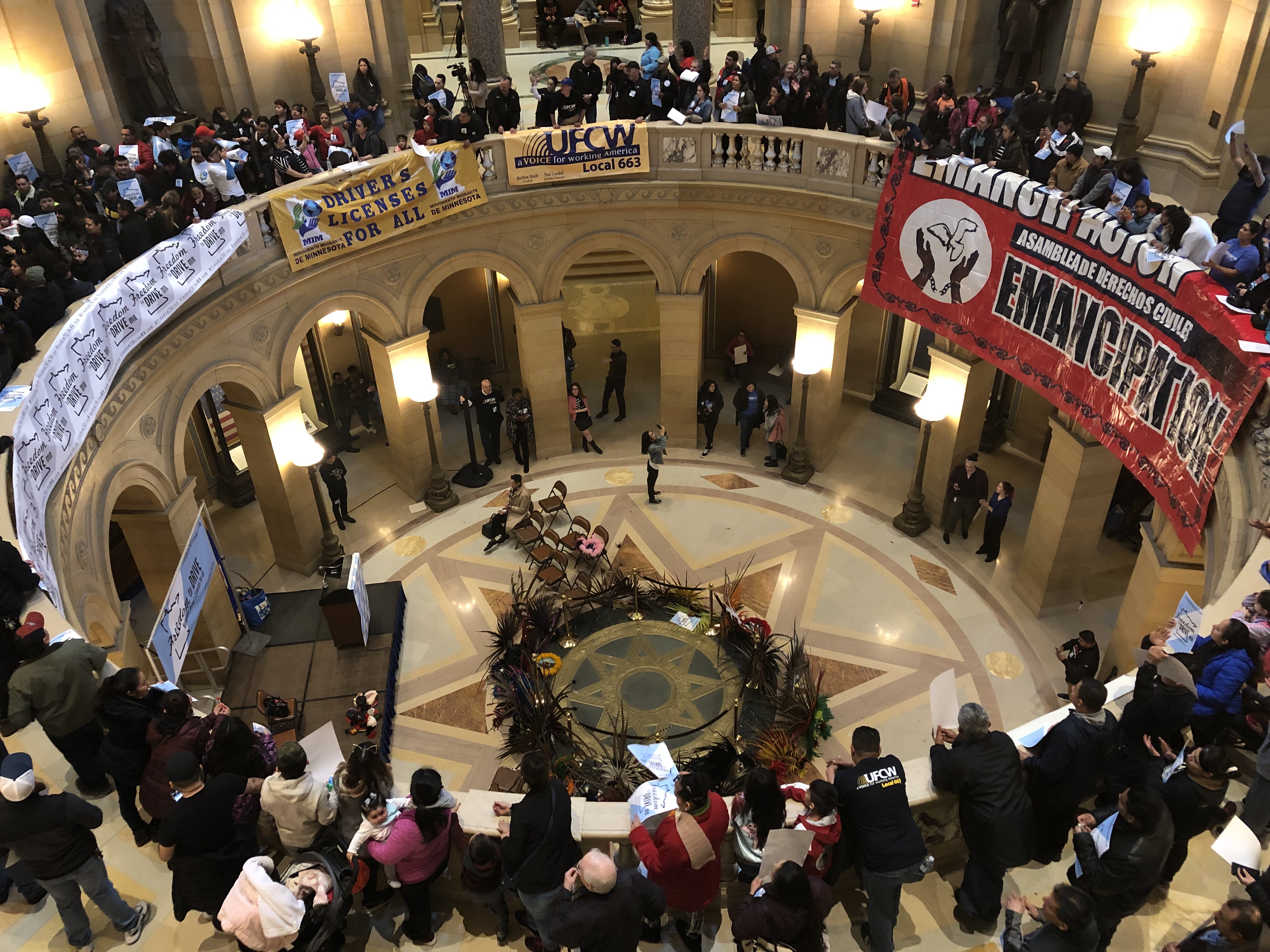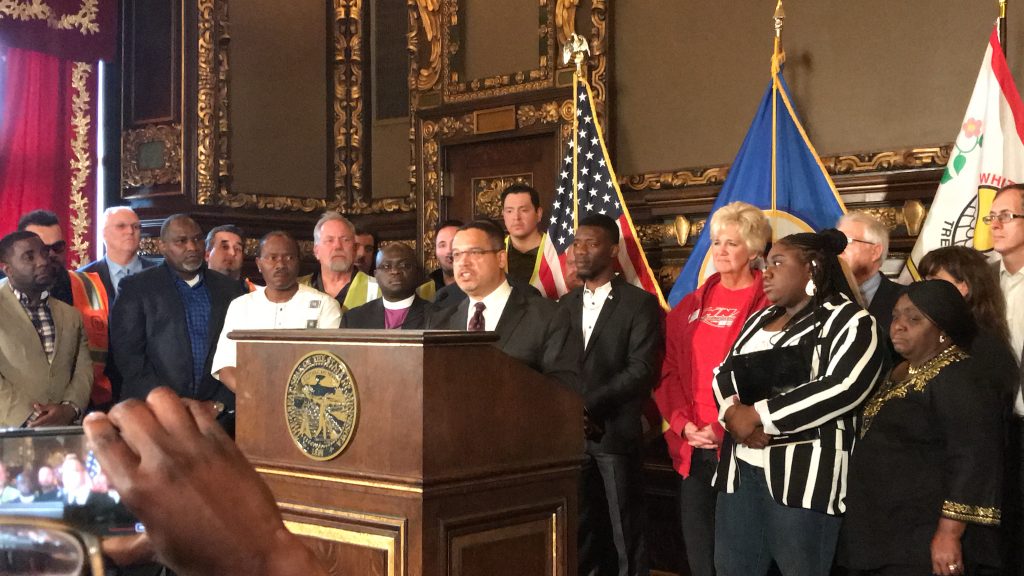
May 13, 2013—The Minnesota House of Representatives passed Driver’s License for All. Governor Tim Walz supports the legislation. Republicans in the Minnesota Senate are still fighting to block the driver’s license legislation in the final days of the legislative session, as they also try to slash funding for schools, health care, the environment, and more.
Back in 2003, then-Governor, Tim Pawlenty changed the rules and barred the state from issuing driver’s licenses to undocumented immigrants. For the past ten years, impacted community members and advocates have worked to restore driver’s licenses for undocumented immigrants. Twelve states already allow undocumented immigrants to get driver’s licenses, and similar legislation is under consideration in several more states this year. Minnesota’s bill has drawn support from community leaders, agencies and organizations, including the Department of Public Safety, Minnesota Chamber of Commerce, and labor and religious groups.
State law mandates that the legislature finish its business and adjourn by May 20. Major disagreements between the Democratic majority in the House of Representatives and the Republican majority in the Senate make finishing the work unlikely. If the legislature fails to agree on funding bills by May 20, the governor could call a special session, or state government could shut down. The last state government shutdown was in 2011 and lasted for 20 days.
At this stage of the legislative session, conference committees made up of senators and representatives try to negotiate agreement on different bills passed by the two houses. Many of these already-passed bills are combined in omnibus bills. Driver’s Licenses for All is part of the omnibus transportation budget bill (House File 1555) passed by the House of Representatives. Driver’s Licenses for All legislation was also part of end-of-session negotiations in 2013 and 2015.







